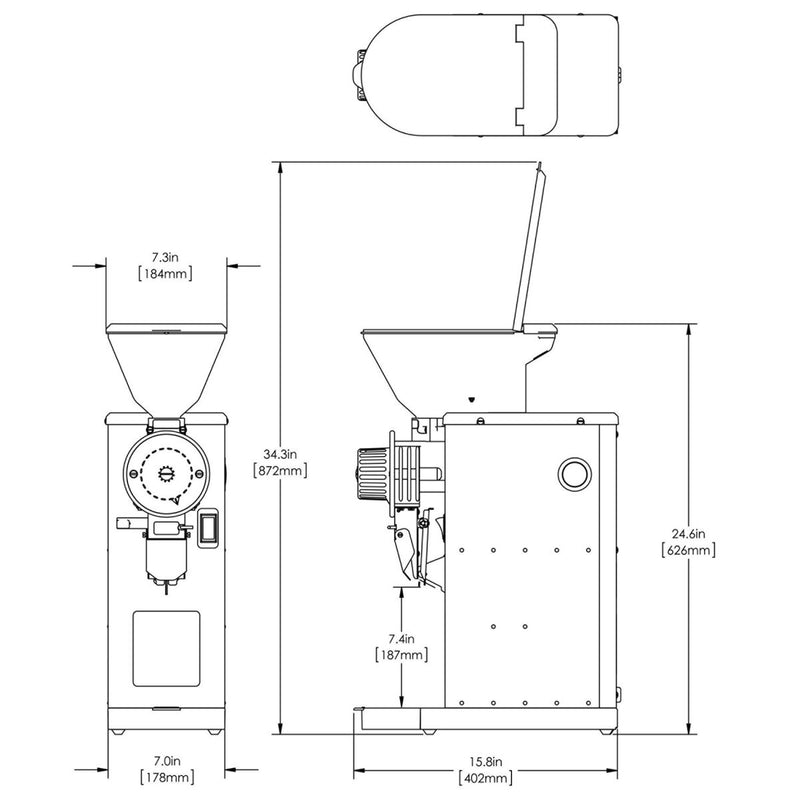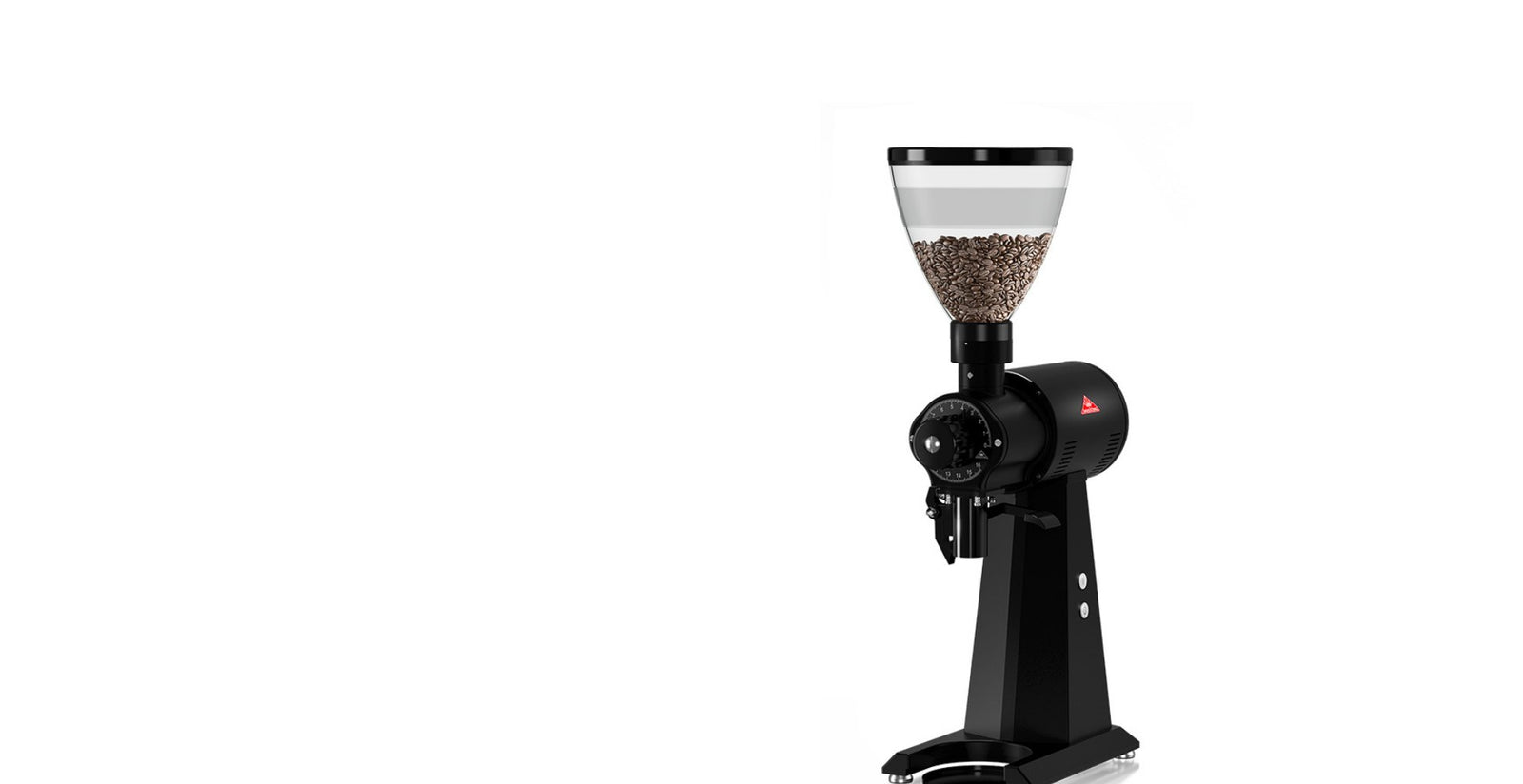Boost Operations with an Industrial Coffee Grinder in Your Business
Boost Operations with an Industrial Coffee Grinder in Your Business
Blog Article
Just How to Choose the Perfect Industrial Coffee Grinder for Your Organization
Picking the suitable commercial coffee grinder for your company is a diverse choice that calls for careful factor to consider of several important variables. Furthermore, comprehending the numerous types of mills available can substantially influence your operational efficiency.
Assess Your Grinding Requirements
When choosing a commercial coffee grinder, one have to first assess their grinding requirements to ensure optimum performance and uniformity. This preliminary examination involves recognizing the quantity of coffee to be refined daily, in addition to the preferred work size for various developing techniques. A high-capacity grinder might be required for businesses offering huge quantities of coffee, while smaller sized operations may find an extra small model enough.
Furthermore, it is important to take into consideration the kinds of coffee beans being made use of, as various beans may call for certain grinding techniques to achieve the finest flavor profile. Oily beans might demand a mill developed to handle such characteristics without overheating or clumping.
Specialty coffee services frequently require specific grind dimensions to boost extraction and flavor, making it essential to pick a grinder that can provide consistent outcomes. Assessing the readily available room and electrical needs will assist in picking a mill that fits seamlessly into your operational operations.
Understand Grinder Types
Comprehending the various kinds of commercial coffee mills is vital for making an informed option that meets specific operational needs. There are mainly 2 groups of mills: blade mills and burr mills.
Blade grinders use spinning blades to cut the coffee beans, causing an inconsistent grind size - Industrial Coffee Grinder. While they may be much more economical, they are commonly not ideal for business applications where accuracy is necessary
On the various other hand, burr mills supply a much more uniform grind by crushing the beans in between 2 surface areas. They can be more classified right into flat burr and cone-shaped burr mills. Flat burr grinders use a regular work dimension and are typically favored for coffee prep work, while cone-shaped burr grinders are flexible and can deal with a series of brew methods, from coffee to French press.
When choosing a grinder, think about the particular needs of your business, consisting of preferred grind consistency, manufacturing quantity, and the kinds of coffee drinks you intend to provide - Industrial Coffee Grinder. Each mill type has its restrictions and advantages, so recognizing these nuances allows informed decision-making that straightens with operational objectives
Evaluate Grind Size Uniformity
Accomplishing grind dimension consistency is essential for generating premium coffee, as variants in bit size can dramatically affect removal and flavor. When selecting a commercial coffee grinder, it is crucial to examine how well the equipment maintains uniformity in work size across various batches. Irregular grind dimensions can result in irregular extraction, causing a cup that might taste overly bitter or weak.
To evaluate work dimension consistency, take into consideration grinders with attributes such as adjustable work setups and top notch burrs. Burr grinders, particularly, master creating consistent fragment sizes compared to blade mills. The product and shape of the burrs play an essential role, with stainless steel and ceramic alternatives offering sturdiness and precision.

Think About Manufacturing Capacity
In the fast-paced globe of coffee production, considering manufacturing capacity is paramount for businesses intending to meet demand without sacrificing high quality. The production capability of a commercial coffee mill directly influences a business's capability to meet orders effectively, handle supply, and react to fluctuating market fads.
When assessing manufacturing ability, it is necessary to evaluate the grinder's outcome rate, generally measured in pounds per hour. This dimension must line up with your business's forecasted sales volume and growth targets. For example, a coffee shop with a high turn over may need a grinder that can refine numerous hundred pounds daily, while a smaller procedure may suffice with a lower ability version.
In addition, think about the sort of coffee being refined. Different beans and blends may impact grinding rate and efficiency, requiring a grinder efficient in taking care of varied manufacturing demands. It's also worth factoring in the grinder's capability to preserve regular high quality under high output problems, as any type of variations can impact the end product.
Eventually, choosing a mill that matches your organization's production capacity will certainly guarantee you stay receptive and competitive to customer assumptions.

Budget Plan and Maintenance Aspects
When evaluating the best commercial coffee maintenance, mill and spending plan aspects play a considerable duty in the general decision-making process,. An initial financial investment in a top quality mill can generate long-term benefits, yet it's important to establish a clear budget that aligns with your service's functional needs. Take into consideration both the purchase rate and possible operational why not try here prices, such as power intake and substitute parts.
Industrial coffee mills call for regular upkeep to make navigate to this site sure ideal performance and long life. Assess the maker's recommendations for upkeep, consisting of cleansing routines and parts replacement, as these will certainly influence long-term functional prices.

Buying a mill that is durable yet simple to keep can save cash in time. While lower-priced alternatives might be alluring, they may sustain greater maintenance costs and lowered effectiveness. Inevitably, stabilizing preliminary prices with long-lasting upkeep and functional efficiency will certainly guide you to the very best option for your organization's coffee grinding requirements.
Final Thought
Picking the suitable commercial coffee mill demands a detailed examination of grinding needs, grinder kinds, grind dimension uniformity, manufacturing ability, and monetary considerations. By prioritizing these factors, services can ensure the procurement of a trustworthy, reliable mill that meets specific functional demands. An appropriate grinder not only improves the quality of the coffee generated but additionally adds to the general success and productivity of the venture. Lasting efficiency and upkeep convenience must stay main to the decision-making process.
Specialty coffee companies frequently require accurate work sizes to improve extraction and flavor, making it important to choose a mill that can supply uniform results. Flat burr grinders offer a constant grind dimension and are generally favored for coffee prep work, while conelike burr grinders are flexible and can handle a range of article source mixture approaches, from espresso to French press.
When choosing a commercial coffee grinder, it is important to assess how well the equipment keeps uniformity in work dimension across various batches. Burr grinders, in particular, succeed in producing uniform fragment dimensions compared to blade mills.Choosing the perfect commercial coffee grinder demands a detailed examination of grinding requirements, mill kinds, grind dimension uniformity, production ability, and monetary factors to consider.
Report this page